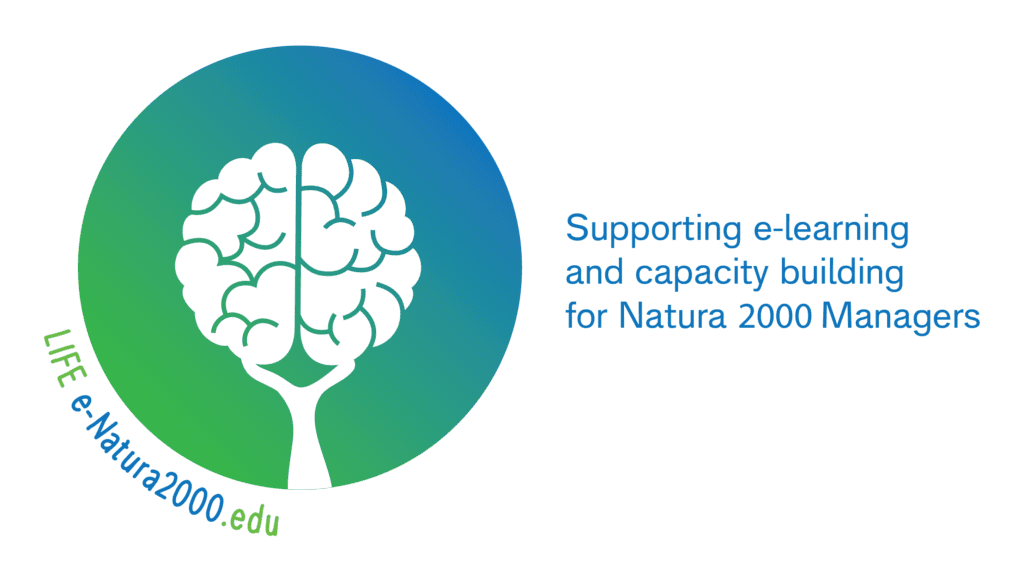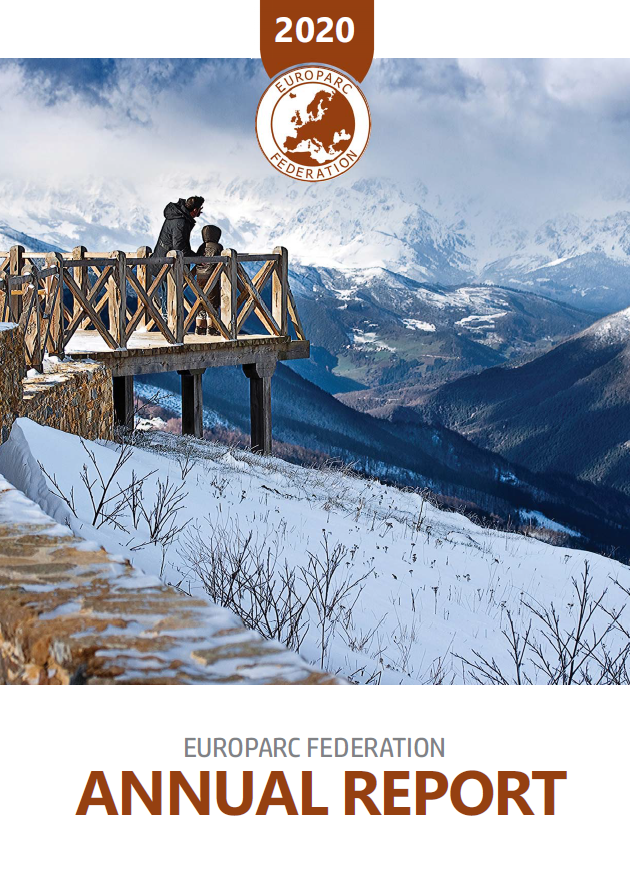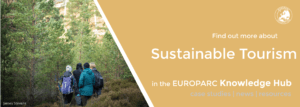Looking back: EUROPARC Annual Report 2020 is out!
Montaña Palentina, NP Junta de Castilla y Leon © Juan Garcia Lucas
Every year, the EUROPARC Federation publishes its Annual Report in English, French and German to showcase the work we have been doing in accordance to our strategy.
We don’t need to tell you, that 2020 was a year full of surprises – to say the least! However, EUROPARC is proud to say that even under these extraordinary circumstances, we still managed to support our members and work towards our strategy. Milestones were reached as well, like our first ever online conference, the meeting with Commissioner Sinkevičius and a completely digital European Day of Parks. Curious to see what else we managed to do? Then have a look at our Annual Report, available in 3 languages:
Hear from EUROPARC’s president Ignace Schops on all that happened in 2020:
“As the biggest network organization of Europe, EUROPARC Federation grew to 385 members from 37 countries in 2020, covering 40 million hectares and 40% of Natura 2000, we have an important role to play: to be the voice of nature. With evidence-based solutions we help to achieve the EU Green Deal objectives and give proof that protecting and restoring wildlife positively affects the socio-economic benefits.
Yet, the year 2020 certainly has been one of the most unusual in EUROPARC’s 47-year history. In the space of 6 months, with the arrival of Covid 19 in Europe, things which had previously been ‘taken for granted’ changed: people’s daily lives and our work in protected areas was turned upside down.
We adapted our work to the new, fully online situation. After a period of adjustment, this “virtual” world has become our new reality and as a network we have, I hope, retained our “humanity”, our care and support for our members albeit within the squares of a zoom room. We wanted to ensure that members found solace in the unity of our network, as we all navigated the uncertainties and how to operate under new conditions. Especially when change seemed to overwhelm, we found resilience, innovation and new solutions.
The 2020 European Day of Parks went online with #ParksForHealth. Beautiful video and audio material came flooding in from our members as people were keen to show all that Protected Areas provide for society. Watch the inspirational final video.
Another highlight was EUROPARC’s online conference. Created in very short notice, EUROPARC utilised skills and creative energies across the team to stage an extremely successful conference, with 210 attending over 2 days. The event ensured a positive networking and learning environment and was retained by EUROPARC members and colleagues across the sector.
2020 was also the year of member’s consultation where we sought input for the new strategic direction of EUROPARC. The entire process had to be modified as an online event. Despite the challenges this allowed many members to engage with the consultation process that perhaps may otherwise have not.
EUROPARC’s webinar programme, with 13 webinars being held and an average of 250 participants each continued to attract very positive feedback. Drawing from across the network to bring examples of good practise, has ensured that these webinars have become a highly valued and appreciated service we provide. Watch out for new developments in 2021!
Over all in 2020, EUROPARC has embraced the change in how we now work with new digital tools, realising that international-cooperation and connection as well as ensuring a place for our youth to be involved, are more important than ever.
The extent of what we have achieved in such a tumultuous year is described here in this annual report and is a testament to my colleagues in the EUROPARC Council, Directorate, Sections, Commissions and indeed across the membership.
Change has certainly been the overriding theme of 2020. From the response to COVID-19, to the new EU Strategies, it is clear that Parks and Protected Areas need to be involved in discussions about the future of society and be prepared with solutions to ensure they are part of a safer and more sustainable Europe.
The global response to COVID-19 taught us that we were able to develop a vaccine 4 times faster than predicted, changed our behaviour at high speed which was never expected to be possible before, based our decisions on science and never discussed the cost. With COVID-19 we didn’t discuss the feasibility but necessity and invested in a new kind of solidarity.
The only way to predict and ‘be ready’ for the future is to be a part of creating it. Let’s take the COVID-19 lessons as an example for change where we, the Parks of Europe, can and should be the Changemakers of the Future- for the future of our climate, our biodiversity and the health of our Parks and our People.”
We are hiring: Project Officer & Communications Assistant
Full-time Project Officer & Communications Assistant (f/m/d)
EUROPARC is looking to recruit a talented individual who can complement the EUROPARC team. He or she will work to support the administration and implementation of various projects and, specifically, EUROPARC’s communications activities.
As the lead partner of a new ambitious capacity-building project (LIFE ENABLE), there is a specific role as Project Officer/ Communications Assistant. This supporting role is critical to the effective and efficient running of the project.
We offer a chance to bring your passion for nature and communications together, working to connect people with nature and value Protected Areas across Europe.
Conditions:
This is a full-time position (40 hr/week). The contract is limited to 3 years (project-based).
The place of work is Regensburg Headquarter or Brussels Office.
The applicant needs to be able to work in the EU currently, without restrictions.
Start date: ideally beginning of August, but early September at the latest.
Requirements:
- Affinity with EUROPARC’s mission, values, and core principles
- Flexible and willing to travel
- Proven experience as a Communications Assistant or similar role
- Experience in supporting the delivery of EU funded projects
- Understanding of media relations and digital media strategies
- Proficient in MS Office; familiarity with design software (e.g. Photoshop, InDesign) and content management systems is a plus
- Solid editing and researching skills
- Excellent communication abilities (oral and written)
- Strong attention to detail
- Organizational skills
- Clear ability to work in English both written and spoken
Desirable:
- BSc/BA in Marketing, Communications or a related field is desired but not essential, sufficient and extensive experience would need to be detailed
- Knowledge of project funding procedures, technical guidelines, and reporting processes.
Personal qualities:
- Ability to work effectively as a team member and independently
- Ability to manage multiple priorities under pressure
- Excellent written and verbal communication skills
- Excellent critical and creative thinking and analytical skills
- Friendly and outgoing
- Willing to learn and grow in the post
- The ability to communicate in multiple languages, is an advantage
We offer:
- International working environment
- A small and dedicated team
- Support and guidance from an experienced and multi-national team
- Work in an exciting, high energy environment where you can make a difference
- Excellent opportunities for personal growth
- The opportunity to bring new ideas to our team, and your contribution to develop and innovate the work of EUROPARC
Primary Responsibilities:
As Project Officer, you will provide administrative support for EUROPARC’s programs, projects, and staff and, in particular, the LIFE ENABLE project – this includes but is not limited to:
- Providing essential support to the project, working with the LIFE ENABLE Project Manager and other team members to achieve the project’s success.
- Collection and collation of activity data and statistics for reporting purposes
- Acting as a point of contact if the Project Manager is unavailable
- Preparing project reports and meeting notes
- Coordinating agendas to organize project meetings
- Supporting partners’ activities within the project – for example, provide advice and information to help partners develop their own activities
- Supporting day-to-day planning and carry out administrative duties including efficient capture of data for activity reporting.
- Monitoring progress towards deadlines and reporting any potential delays to the Project Manager.
- Helping to identify problems or risks that can impede the delivery of project activities and propose solutions.
As Communications Assistant you must be an excellent communicator with strong attention to detail – in this role, you will:
- Assist in maintaining web content and create and deliver social media messages
- Help to implement internal and external communications activities.
- Ensure clear communication about EUROPARC as well as the LIFE ENABLE project
- Help develop the project communication plan and implement communication actions for LIFE ENABLE
- Draft and edit materials and communications copy (e.g press releases/ brochures/ reports/ website content/ learning platform content)
- Prepare presentations and reports
- Prepare and publish social media posts
- Prepare presentations and reports
- Collect data and maintain databases
Within LIFE ENABLE, specifically, you will:
- Support the creation, development, and provision of LIFE ENABLE’s learning platform materials, contents, and learning resources
- Support the delivery of courses including as trainer and learning event facilitator.
- Track projects and media exposure
- Facilitate effective internal and external communications
- Maintain calendars and appointments
Application:
Your contact person for questions: Ms. Cristina Popa.
Please send us your application in English (CV, Cover letter, and certificates) no later than 11.59 pm Sunday 27th June 2021 electronically to cristina.popa@europarc.org .
We expect a customized CV showing how your experience meets the criteria of the post, a detailed letter indicating your motivation and how you can meet the requirements of the job description as well as what additionally you can bring to the EUROPARC team. Read the full job description here!
We look forward to receiving your application.
NOTE
1.Late applications after the 27th of June won’t be considered.
2.Due to the expected number of applications, only short-listed candidates will be contacted for interviews.
3.Interviews will be held in English and will take place online via ZOOM. The intended dates for the interviews are the 1st and 2nd of July. You need to be available on the interview dates proposed. Times can be agreed.
SAVE THE DATE: XII European Charter Network Meeting
Logo of "The Charter"
The Charter Award Ceremony, our annual high-level event will take place 14th – 16th September 2021 in Sabugal, Portugal.
The Future Starts Today
Twenty years ago, a group of Protected Areas and tourism professionals came together to create a new way of working, that would seek to build sustainable destinations, that were Good for Nature and Good for People. That was the beginning of the Charter for Sustainable Tourism in Protected Areas, now with 107 destinations in 15 countries.
The possibility for people to come together in the last 18 months was removed as a result of the Covid pandemic, but we begin to take safe and measured steps to meet once again. EUROPARC, with the generous support of the Municipality of Sabugal in Portugal, in the “Terras do Lince” Sustainable Destination announce the XII European Charter Network Meeting: “The Future Starts Today”.
The event will be intentionally smaller and planned with regard to all Portuguese safety regulations, yet we hope to ensure a comfortable, relaxed and engaging event. Some of the sessions will be held outdoors and this meeting will act as a test for us to learn the new protocols on hosting an international event.
Hopefully a larger number of us will be already vaccinated by then, however it is imperative that all intended participants check and comply with the Covid-related entry regulations from your country to Portugal.
We will have for you an exciting programme of keynote speakers and workshops to bring the latest thinking and practice in communication, visitor monitoring, technology and other themes from across the EUROPARC network. There will be plenty of opportunities for “socially distanced” networking, to find out how everyone across the network is coping and creating their new futures. There will be chances for you too, to share your ideas, projects and inputs in a special speaker’s corner. The generous hospitality of our Portuguese hosts will ensure you feel safe and welcomed, engaging fully with local culture. You will also have the opportunity to visit the “Terras do Lince” Sustainable Destination, and see how they are working with the Charter.
A special awards ceremony will bring together the Charter community along with other EUROPARC awards.
So if you are working in a sustainable tourism business or a Protected Area, or are just interested in sustainable tourism, please consider joining us in September for this unique event.
A more detailed programme and registration will be open by late June.
SAVE THE DATE for now!
What is the price?
The conference fee is 70 Euro for EUROPARC members and Charter Partners, and 90 Euro for non-members.
How to get there?
You would need to arrive in Madrid (390 km 4h30) or Porto (3 hours – 250 km). Transfer from each will be available on 13th and 17th.
There is plenty of accommodation available in and around Sabugal and we invite you to explore this lovely area.
Stay tuned for more information to come and we hope to see you face to face in Portugal!
How can the eNatura2000 app benefit you?
We can tell you how great the eNatura2000 app is, but why not hear it directly from an end-user? That is why LIFE e-Natura2000.edu project partner ELO interviewed Valerie Vandenabeele. Find out why she likes to use the app:

Tell me about your organization?
My Organization, Aanspreekpunt Privaat Beheer – Natuur en Bos, was established by the Flemish Landowners’ Organization and Forestry Groups to join forces between policy and management in the field. On the one hand, we represent the private landowners and land managers in policy debates and towards government. On the other hand, we are the focal point that inform and communicate difficult and entwined policy as practically as possible to our stakeholders.
What is your background with Natura 2000?
I have been employed 10 years, by the Flemish Hunters Organization and the Flemish Landowners Organization, to follow up on the Natura 2000 project in Flanders. My initial role was to represent both hunters and landowners in the Natura 2000 debates on Flemish as well as local scale, inform local hunters and landowners of Natura 2000 and the possible impacts. I have learned about all the legislation that landowners come across to implement Natura 2000. We managed to solve some issues landowners face in the new Nature legislation that allowed subsidies for private natura management for the first time. Still, there are a lot of negative impacts that should be resolved to create more stimuli for private stakeholders. It is a good thing though, that Natura 2000 stands for multifunctionalities of nature, allowing economical and recreative activities. In Flanders, that is a necessary incentive allowing us to progress nicely so far.
What is your favorite feature of the app?
Personally, I like to check the webinars on the app that may give me some idea of the direction that policy is taking.
How do you think this app would be useful to Natura 2000 land managers?
Flanders is a highly populated region and somewhat a bit of a stranger in the classroom. For land managers, good examples are key to inspire them to develop their management plans. Unfortunately, we see a lot of examples that are large-scale nature restorations by nature NGO’s or governments. Landowners and even nature NGO’s don’t always have so much property at their disposition in Flanders. We must think at a smaller scale on land that is much more costly than in other EU countries. Some examples of small-scale implementation, for example puddles for amphibia or stepping stones and corridors between more intensely used land, could lower the threshold for many private land managers in Flanders.
It is great that there is such a forum to connect land managers all over Europe.
Even if Natura 2000 management in the raw nature of Slovenia is very different form the multifunctional and small-scale implementation in Flanders metropolitan area.
The eNatura2000 app is available in the Google Play & App Store and was developed within the LIFE e-Natura2000.edu (or LIFE.edu for short) project.


